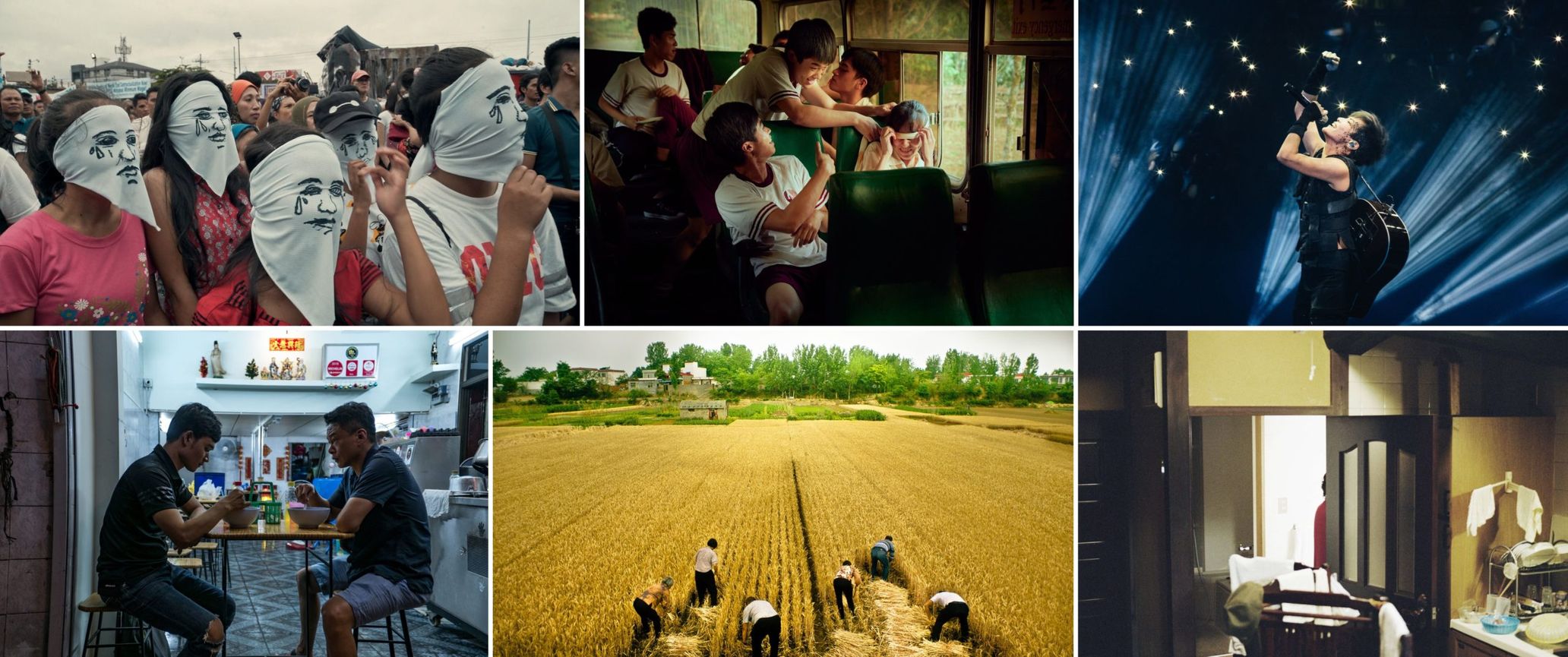Coronavirus is having a massive impact on film festivals. Two film festivals that represent Tokyo the most, TOKYO FILMeX and Tokyo International Film Festival, moved the opening dates to almost the same timeframe. TOKYO FILMeX took various measures to prevent the spread of the virus, their most noteworthy being their online screening that took place after the festival itself.
2020, the year that people could watch films that film festivals screened
Until this point, even if I were to write a lengthy essay on a film that a film festival screened, it was difficult for the reader to watch said film (more so if it was from abroad). The reason is essays and reviews are usually published after the film festival is over. So, we write these essays with the small hope that our readers could watch the films at a movie theater. But domestic movie theaters only show a limited amount of Asian films.
This time is different, though. The unique thing about TOKYO FILMeX is the fact they started screening films online from November 21st, two weeks after the film festival (November 7th). TOKYO FILMeX is planning on continuing the screening until 11:59 PM on November 30th, only in Japan. The space between the festival and the online screening allowed people to read articles on the screened films before watching them in their own time. The way they planned the schedule is generous. Though TIFF’s “Asia Lounge” Conversation Series was a good project, it was inconvenient for the audience. They streamed it at the same time as the festival, and it overlapped with the nighttime schedule. They also didn’t have archived streams or videos on platforms such as YouTube. The viewer had to choose between going to the film festival or joining the Zoom meeting for the “Asia Lounge” Conversation Series. Isn’t hosting an awkward virtual meeting missing the point?
Going back to TOKYO FILMeX’s online screening; upon the commencement of “TOKYO FILMeX for the bright future of cinema” on November 3rd, the director of TOKYO FILMeX, Shozo Ichiyama, said “depending on whether the distributing company was from Asia or the West, the way they handled online screenings was different.” Because Western companies were familiar with online screenings, most of them gave permission, but most Asian companies didn’t give the green light because of their lack of familiarity with the medium. Now I’d like to introduce five Asian films that are streaming online.
Prioritize watching documentary films
Most films at TOKYO FILMeX are fictional, so it was rare to see three documentary films online this year. The documentaries that are showing online are a Filipino film called Aswang (2019) by Alyx Ayn Arumpac, which I touched on briefly in my previous article, a Chinese film called Swimming Out Till The Sea Turns Blue (2020) by Jia Zhangke, and an American film called Denise Ho: Becoming the Song (2020) by Sue Williams. I recommend you all to prioritize watching these documentaries because it’s rare for Asian documentaries to be released in Japan. Although the situation has gotten better thanks to the emergence of the streaming platform, Asian Documentaries, Asian documentaries are still scarce outside of film festivals. For instance, The Master (2014) by Nawapol Thamrongrattanarit, which I spoke about in part one, is a masterpiece, but I haven’t had the chance to re-watch it. You could say that Asian documentary films are the “ones that got away.”
Aswang shines a light on people struggling amid president Duterte’s war on drugs, and it’s a challenging film that enters the dark side of Filipino society. Instead of focusing on law enforcement a la ON THE PRESIDENT’S ORDERS which was aired by NHK BS in April, Aswang zooms in on the victims of extrajudicial killings and their families. The close-up shots of the faces of surviving families and relatives communicate the absurdity and irrationality of killing people for no reason.
If Aswang tells a story using faces, then Swimming Out Till The Sea Turns Blue is one that uses narration. In this piece, four Chinese writers from different generations look back on China’s recent history. The people that stood out to me were the original writer of Zhang Yimou’s film, To Live, Yu Hua and the writer of China is Here, The Crowd of Poor People, Rian Hon.
I had the chance to talk to the translator of China is Here, The Crowd of Poor People, Masahisa Suzuki, after the film screening. It surprised Suzuki-san to see how heavy Rian Hon’s older sister’s Henan dialect was after watching the documentary. From the impression he got from translating the book into Japanese, he presumed the sister spoke standard Chinese. So, the disparity between the book and the way she talked in actual life struck him. I didn’t notice it because the Japanese subtitles didn’t reflect her dialect. Towards the end, the director asks an individual if they know how to speak the Henan dialect, and it appears Rian Hon’s older sister’s heavy dialect is supposed to preface the generation gap that exists regarding dialects.
Denise Ho: Becoming the Song is a documentary on Denise Ho, a singer and democratic activist from Hong Kong. There are many excellent elements about the film, such as her scene with her teacher, Anita Mui, her talking about how she came out as a lesbian, Denise’s revelation that she supports the Umbrella Movement, her unwavering beliefs unaffected by Chinese suppression, and her all-around outstanding singing. It’s a music documentary film that makes you want to watch it again.
Challenging oneself to watch Days, a film with no subtitles
Perhaps Days (2020) by Tsai Ming Liang is the most unfit film to watch online. First, there are zero subtitles. Next, there are a lot of long shots. And there are almost no lines. Days is an art-house film in the strictest sense of the word. The story follows the daily lives of Kang, played by Lee Kang-sheng, a middle-aged man who suffers from chronic neck pain, and Non, a young Laotian immigrant living alone in the city. Eventually, their separate lives intertwine when Non meets Kang in his hotel room in the city as a masseur. For those not accustomed to watching art-house films, it would be difficult to get immersed in their daily lives. But if you sit still and keep your eyes and ears open, you will eventually see the film’s every detail. It is once you get over that hurdle, when the richness of this minimal film reveals itself to you. I feel like watching Days is akin to getting into a sauna. At first, you must be very patient, but as the two characters meet each other, you too might feel a sense of release and pleasure.
This piece isn’t among the roster of films being screened by TOKYO FILMeX, but The Work and Days (of Tayoko Shiojijri in the Shiotani Basin) (2020) by C.W. Winter and Anders Edström is an eight-hour film about Kyoto’s four seasons and watching this is also similar to taking a sauna. The Work and Days (of Tayoko Shiojiri in the Shiotani Basin) is planned to be released in movie theaters nationwide in 2021. If an eight-hour-long film can be shown in theaters, then perhaps Days, which is less than two hours, has a chance at being shown in theaters too. However, this isn’t confirmed yet, so I would highly recommend you to watch it. On another note, Days received the Teddy Award at the Berlin International Film Festival, while The Work and Days (of Tayoko Shiojiri in the Shiotani Basin) got the Encounters Award for best film at the same festival. Perhaps this film festival has an affinity for films that give the viewer a sauna-like experience.
Watch the unsettling film, The Silent Forest
At the Taipei Film Festival this year, the closing film was Days while the opening film was Ko Chen-Nien’s debut film, The Silent Forest (2020). You can watch both films through TOKYO FILMeX’s online screening, which allows you to experience how Taiwan is like today. The story is about a hearing-impaired student named Chang who moves to a new school for the hearing-impaired. On the school bus, Chang witnesses the “game,” where the male students sexually assault one girl called Bei Bei. It’s a shocking plot, but it is based on a case that happened at a school for deaf children in Taiwan in 2011. Derek Tsang’s Chinese film, Better Days (2019), is also a film about group violence in school, and it won the Audience Award at the Osaka Asian Film Festival 2020. Just like how this film was shown in theaters, I have a feeling that The Silent Forest is also going to be released in movie theaters too. The Silent Forest is a mystery film that makes the viewer think about the ringleader Xiao Guang’s motives and who is pulling the strings behind his actions. It depicts the difficulty of stopping the cycle of abuse. I would suggest you watch this unsettling film that doesn’t give a simple solution to a serious issue before it’s released in theaters.
That was my recommended way of watching TOKYO FILMeX’s online films, but there are various ways to do it. I hope you could use this rare chance to watch films according to your taste and preference.
TOKYO FILMeX: https://filmex.jp/
Pictures provided TOKYO FILMeX
Translation Lena-Grace Suda









